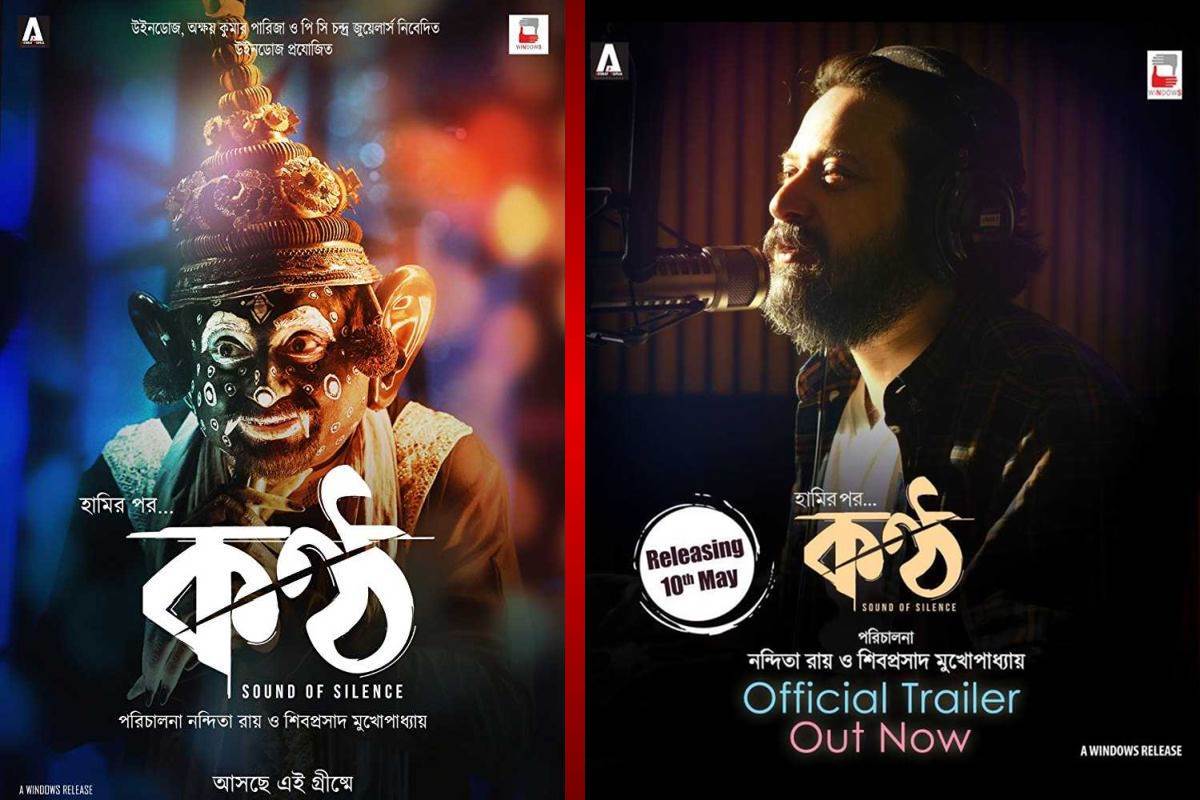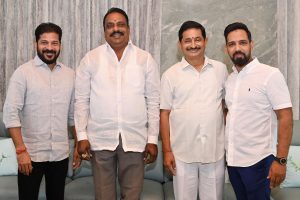Konttho review: Shiboprosad Mukherjee and Nandita Roy’s joint endeavour Konttho (Sound of Silence) shows that the tunnel is not always dark; it is a well-lit one and only appears dark depending on who is walking through it. It is based on the true story of Bibhuti Chakraborty, a voice artist, who had laryngeal cancer and learnt to use his oesophagus as an alternative voice. Konttho interweaves this with fictional sub-plots to make the film entertaining and informative. It can also trigger social change because of its story of what can be achieved with determination, focus and perseverance. Arjun Mullick is a famous radio jockey. He is a chain smoker married to Pritha, a television news reader/anchor and the couple have a small son.
Arjun is to win the award for the Best Voice of the Year. But he finds he cannot deliver the acceptance speech because he has lost his voice. Persistent bouts of coughing and some blood in his sputum lead to a diagnosis of rapidly spreading throat cancer that demands the voice box to be removed permanently. Arjun’s world collapses and he begins to lose his balance, never mind his surgeon’s golden words, “Is voice more important than life?”
Pritha is a solid wall of support but is that enough to rouse his spirits? He throws things around, insults his wonderful friends and colleagues who are very empathetic, goes into deep depression, locks himself up in his room and becomes violent towards his loving wife and son. The directors have articulated in great detail and greater depth, the mental and physical agony a voice artist goes through when his voice cuts away the very meaning of his life. At the same time, they have not dwelt on the graphic details of the surgery that would have distracted one from the personal struggle.
“Many relationships have been destroyed because words were not said; many people moved away because words were not uttered” are lines Arjun would tell his listeners. Ironically, they now define his relationships. The directors, script and dialogue constantly struggle along with Arjun to reach some destination, any destination where he can speak and go back to the flourishing career he is forced to give up. Sound is the very basis on which this film is built so it plays a stellar role as does silence when Arjun begins to write his speech on boards and literally throws them away in disgust. Music too, plays a significant role mainly in the song pieces beautifully positioned, choreographed and presented. Special mention must be made of the song Shobai Chupsung by Sahana Bajpaie on a composition by Prasen as it fleshes out the love story of Arjun and Pritha through their coming together with scenes from a street play being rehearsed, through reciting Tagore’s Korno Kunti Sambad together at a function or reciting at a Saraswati Pooja linked with small vignettes of their sojourn in love through the seasons.
The other songs are also melodious and beautifully delivered by the leading young voices in the music industry today. They never dominate the story or its development or intrude into the interactions between and among the three major characters and also the small son who is very scared of a father who is now a stranger to him, which Arjun tries to smoothen away. The cinematographer amazes us with the magic lighting he uses in the party song to celebrate the award.
Romila, a Bangladeshi speech therapist with issues of her own, is persuaded by Pritha to take up her husband’s case just when she is packing her bags to go back to Dhaka with her daughter. The film takes a dramatic turn with Arjun going through the paces, first with a sense of desperation but gradually, with strength of purpose he did not know he had and Romila is always beside him, coaching him in every way and everywhere, oblivious to the stares of those who watch them not knowing what is going on. A speech therapist needs to spend quality time with a single patient till there are signs of improvement in treatment. Romila and Arjun are thrown together always and everywhere but thankfully, though Romila, going through an ugly divorce, finds a soft corner for Arjun, she steers away from emotional involvement knowing that he is happily married to Pritha.
Arjun’s oesophageal voice sounds strange, funny and mechanical.
To resolve this, Arjun and his colleagues create an “alien” who would conduct the programme and talk to the listeners as if from another planet. This arrives in the form of a tribute to Satyajit Ray’s Goopy Gyne Bagha Byne (1969) and at the inaugural programme, Arjun dresses up like the ghost king and the audience is mesmerised. The show is back though as an alien. Arjun’s life turns full circle.
The sub-plot with Paran Bandopadhyay talking about his sexual capabilities post-surgery roughens the smooth narrative needlessly and sticks out like a sore thumb. Chitra Sen’s loud acting as the irritating aunt of Arjun is also superfluous and hardly adds the humour it was designed to bring across.
The portrayals by the major players are incomparable. Shiboprosad Mukherjee, who doubles also as Arjun, successfully brings out the finer nuances of his multi-layered character with greater skill than artistry because the demand for skill is stronger. Paoli Dam as Pritha enriches her performance with slight touches such as breaking into tears behind closed doors, feeling insecure about Arjun’s closeness to Romila, trying to put on a smiling face to hide the tremendous pain within, all of which proves that she is really an actress of significance. Jaya Ahsan is beautiful, intelligent and very good, investing her performance with just the right degree of subtlety alternating with lightness and froth. Konineeca proves what a power packed actress she can be if given the chance.
Cancer —terminal, benign or curable — has been both the bane and boon of Indian cinema. The first film that was a box office hit though it ended in the death of the protagonist was Hrishikesh Mukherjee’s Anand followed by another tear-jerker, Milialso by Mukherjee. These films were targeted mainly at the tear glands of mass viewers and they left with moist eyes but happy because it was money well-spent.
Konttho will bring that smile back to your face as you leave the hall. Shiboprosad and Nandita have taught themselves to cut out the melodrama and yet tug at the heartstrings of viewers.











